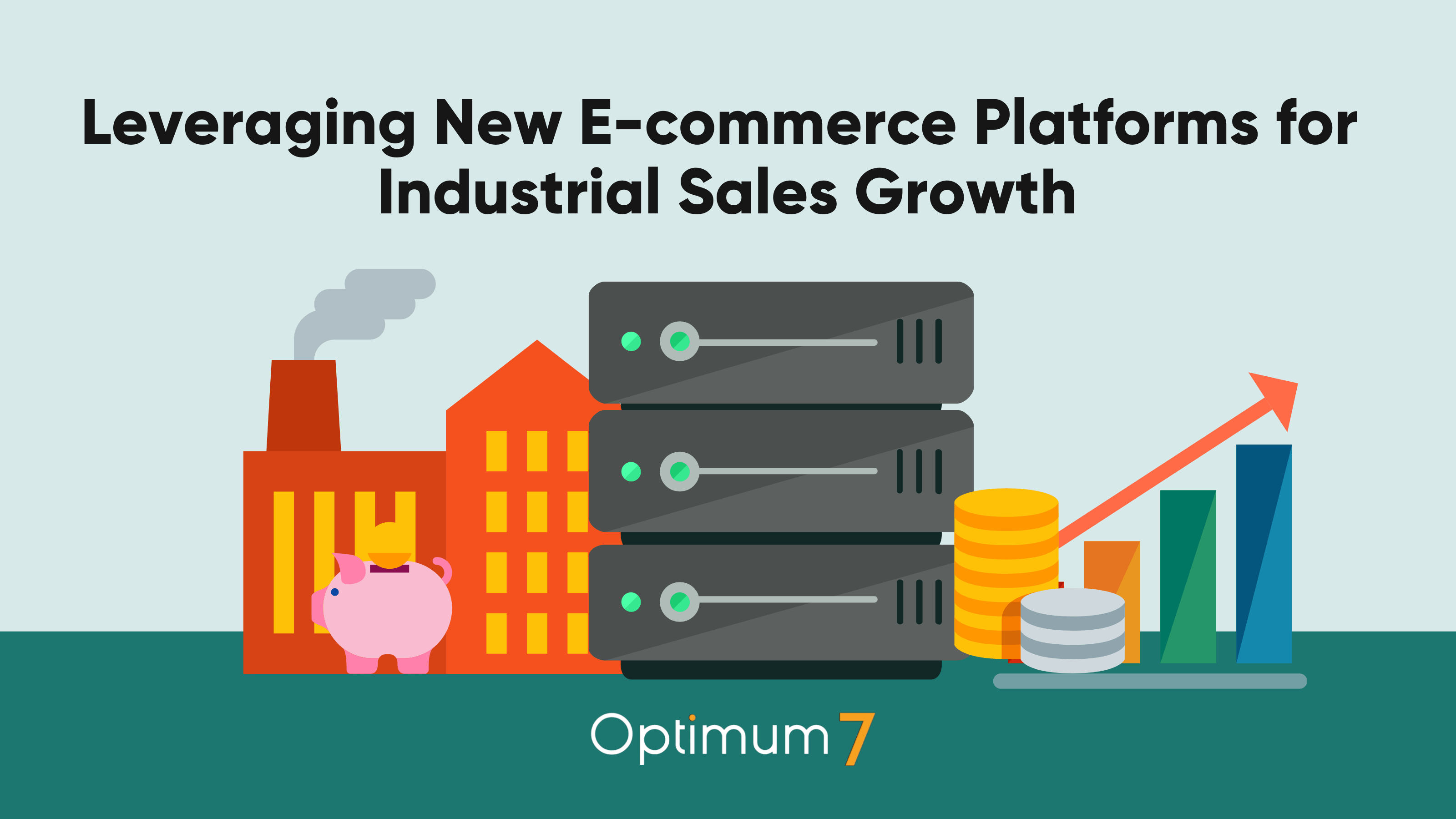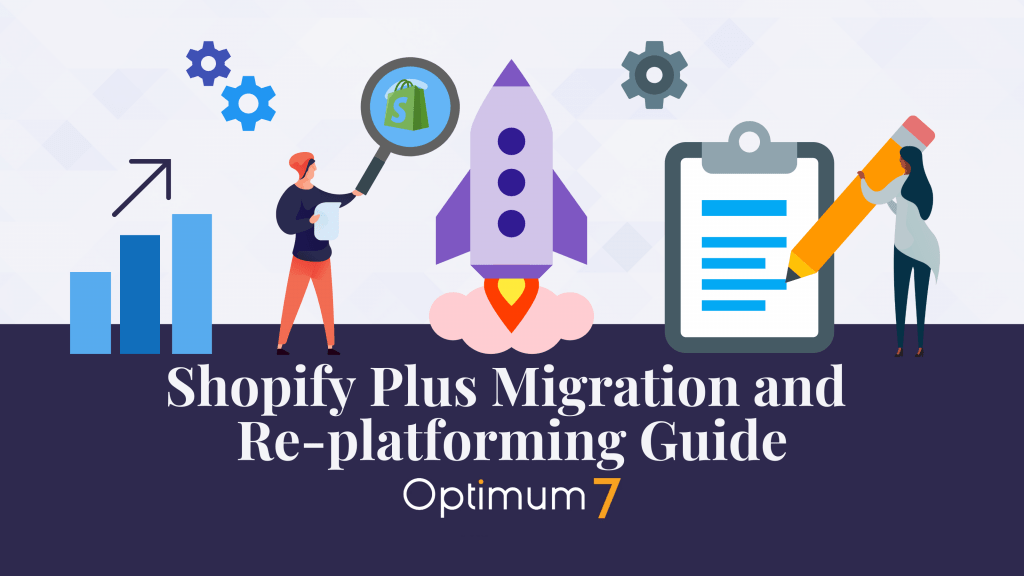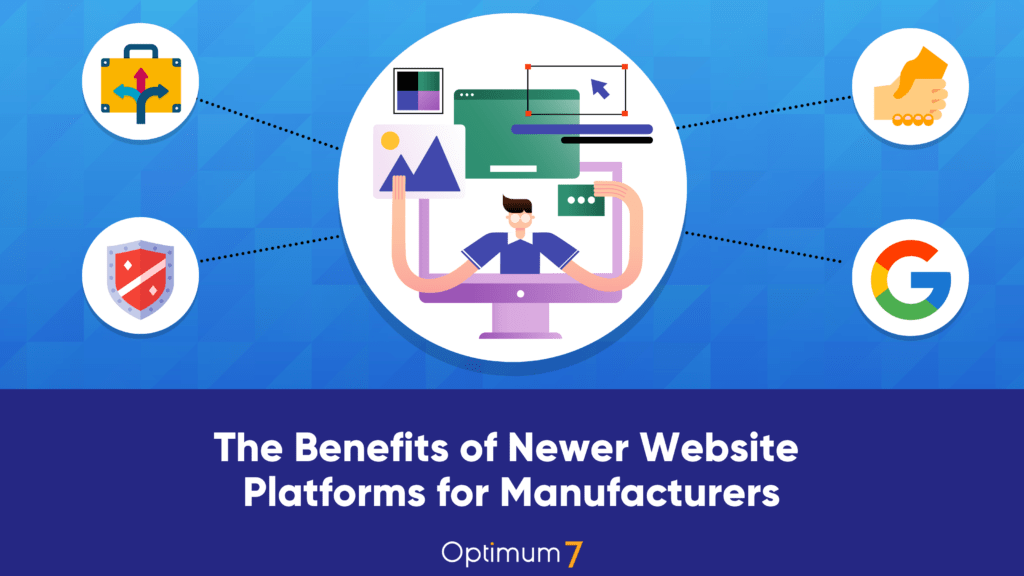The industrial sector is at a pivotal juncture. Traditional sales methods and legacy systems, once the backbone of industrial sales, are now barriers to growth and efficiency. These outdated approaches struggle to keep up with the speed of digital transformation, leading to missed opportunities and diminishing competitiveness. In an environment where speed, flexibility, and customer satisfaction are paramount, reliance on old systems is a clear disadvantage.
Enter the modern e-commerce platform: a solution that addresses the critical shortcomings of legacy systems. These platforms offer industrial manufacturers the tools they need to streamline operations, reach new markets, and improve customer engagement. With features like automation, real-time analytics, and integrated customer service, e-commerce platforms are not just an upgrade but a necessary evolution for businesses looking to thrive in a digital-first marketplace.
The decision to transition to an e-commerce platform is more than adopting new technology; it’s a strategic move towards future-proofing your business. This discussion aims to explore how embracing e-commerce platforms can transform industrial sales, making operations more effective and driving growth in ways that were once impossible with legacy systems.
The Limitations of Legacy eCommerce Systems
Legacy systems in the industrial sector are characterized by their inflexibility, complexity, and isolation from modern digital ecosystems. These systems make it challenging to adapt to changing market dynamics or customer needs quickly. Here are some of the critical limitations:
Scalability Issues
Legacy systems often cannot handle increased loads or expansion into new markets without significant upgrades or customizations, which can be costly and time-consuming.
Lack of Integration
Many older systems operate in silos, unable to communicate with other business tools like CRM or supply chain management software, leading to inefficiencies and data discrepancies.
Manual Processes
Dependency on manual processes for order processing, inventory management, and customer service not only slows down operations but also increases the likelihood of errors.
Inadequate Customer Experience
Legacy systems typically lack the capabilities to provide the personalized and seamless experiences that today’s customers expect, such as self-service portals, personalized product recommendations, and real-time support.
Transitioning to E-commerce Platforms
The shift towards e-commerce platforms represents a critical step forward for industrial manufacturers. These platforms are designed with the modern business landscape in mind.
Enhanced Scalability and Flexibility
E-commerce platforms can easily scale to accommodate growth and adapt to changing business needs, supporting expansion into new markets without the need for extensive customization.
Automation of Key Processes
From order processing to inventory management, e-commerce platforms automate routine tasks, freeing up valuable resources and reducing errors.
Superior Customer Experience
These platforms offer advanced features like personalized product recommendations, multi-channel support, and user-friendly interfaces, meeting and exceeding customer expectations.
By addressing the limitations of legacy systems head-on, e-commerce platforms not only streamline internal operations but also enhance the customer journey, leading to improved satisfaction and loyalty. Moreover, the data-driven insights provided by these platforms enable manufacturers to make informed decisions, tailoring their strategies to meet market demands more effectively.
Streamlining Operations and Enhancing Efficiency
One of the most significant advantages of e-commerce platforms is the streamlining of business operations. Automation plays a key role here, eliminating the need for manual data entry and processing. This not only speeds up operations but also reduces the risk of human error, ensuring orders are processed accurately and efficiently. Inventory management becomes more precise, with real-time tracking and alerts for low stock levels, helping manufacturers avoid stockouts or overproduction.
Integrated analytics tools offer another layer of operational efficiency. By analyzing sales data, customer behavior, and market trends, manufacturers can make informed decisions about product development, pricing strategies, and inventory management. This data-driven approach ensures resources are allocated effectively, optimizing the return on investment.
Expanding Market Reach and Customer Base
E-commerce platforms open up new avenues for market expansion. With online sales channels, manufacturers can reach a global audience, breaking down geographical barriers that traditional sales methods cannot overcome. This expanded reach also comes with the ability to operate 24/7, allowing customers to place orders at any time, significantly increasing sales opportunities.
Moreover, e-commerce platforms offer advanced marketing and SEO tools, making it easier for manufacturers to target their ideal customer base through personalized marketing campaigns and content. This not only helps in attracting new customers but also in retaining existing ones by offering tailored experiences that meet their specific needs and preferences.
Improving Customer Experience and Satisfaction
The modern buyer expects a seamless, personalized shopping experience, and e-commerce platforms are designed to deliver just that. Features such as personalized product recommendations, easy navigation, and fast checkout processes enhance the shopping experience, leading to higher customer satisfaction and loyalty.
After-sales support is another area where e-commerce platforms excel. With integrated customer service tools, manufacturers can offer timely and efficient support, addressing customer queries and issues quickly. This not only improves the overall customer experience but also builds trust and credibility for the brand.
Accelerate Your Digital Transformation with Optimum7
The journey from legacy systems to modern e-commerce platforms is a critical step for industrial manufacturers aiming to stay competitive and grow in the digital age. Optimum7 is your ideal partner in this transformation, bringing unparalleled expertise with a flawless track record of thousands of successful migrations. We guarantee a smooth transition with 100% uptime and zero data loss, ensuring your business leverages the full potential of digital commerce without missing a beat.
Our deep understanding of the industrial sector’s unique needs allows us to tailor each migration to ensure maximum efficiency, scalability, and customer satisfaction. With Optimum7, you gain more than a service provider; you gain a partner committed to your business’s success in the digital landscape. Let us help you unlock new opportunities for growth and operational excellence with a seamless transition to a modern e-commerce platform.
This condensed conclusion emphasizes Optimum7’s capabilities and commitment to ensuring a successful digital transformation for industrial manufacturers, positioning the company as a trusted partner in navigating the transition to e-commerce platforms.






